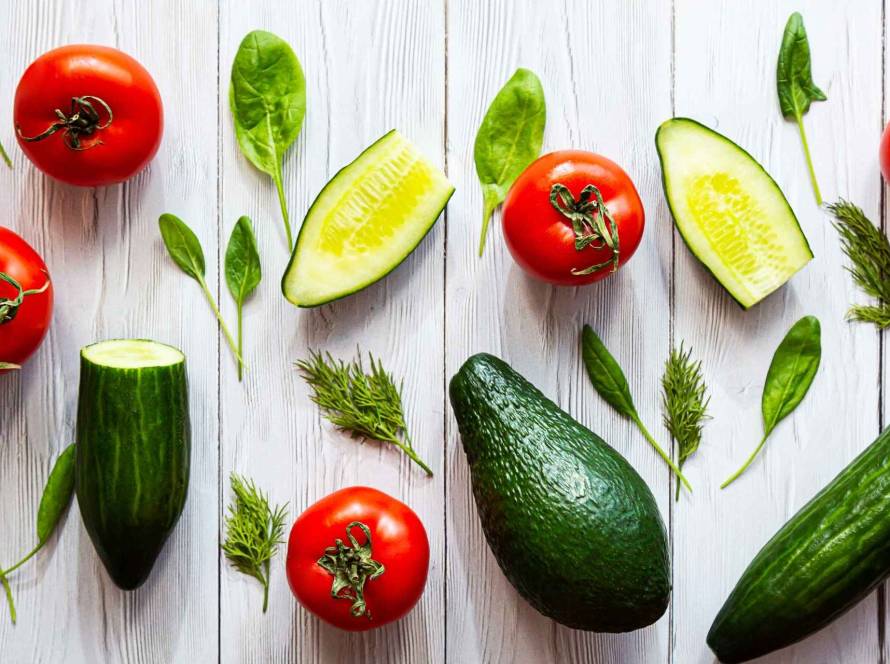Our diet profoundly influences how we age and how long we live. Species across nature demonstrate that nutrition shapes lifespan. Modern science distinguishes between lifespan (years lived) and healthspan (years lived well). With rising interest in living longer and better, researchers examine not just genetics but our daily food choices.
In this piece, we”ll explore what is the best diet for longevity, based on research and centenarian habits, and how can we apply these insights to our own lives?
What science says about diet and longevity
Major observational studies link diet quality to disease risk and survival. Research show that reduced caloric intake without malnutrition correlates with lower metabolic disease. Likewise, Fontana et al. discuss how nutrients modulate aging pathways, like insulin, mTOR and sirtuins, connecting diet to biology.
Eating patterns rich in nutrient-dense, minimally processed foods consistently demonstrate lower rates of heart disease, stroke, cancer and cognitive decline. Healthy metabolic markers, such as stable blood sugar, normal cholesterol and low inflammation, predict longer survival, according to research.
Lessons from the blue zones
Studies in Okinawa, Sardinia, Nicoya, Icaria and Loma Linda, the “Blue Zones”, reveal common dietary themes among centenarians: predominantly plant-based foods, minimal processed ingredients, modest animal protein and mindful eating habits.
Traditional dishes like Okinawan sweet potato, Sardinian whole grain flatbreads and Costa Rican beans, are all rich in fiber and phytonutrients. Sardinian centenarians exhibit low rates of metabolic disease and longevity linked to dairy, vegetables, legumes and warmth with community.
Mindful eating and food culture
Longevity isn’t just what we eat, it’s how we eat. Blue Zones and Mediterranean cultures emphasize:
- Eating slowly and stopping at 80% fullness (Okinawan “hara hachi bu”);
- Sharing meals within families and communities;
- Preparing seasonal, homemade food rooted in tradition.
Socially connected meals support mental health, reduce stress and prevent overeating, all contributing to a longer, more resilient life. These regions align around non-dietary lifestyle factors, like social engagement, movement integrated into daily life and eating mindfully, underscoring that longevity is driven by food as much as context.
The Mediterranean Diet and healthy aging
The Mediterranean Diet showcases what longevity-focused eating looks like in action. Its core foods, olive oil, legumes, vegetables, whole grains, fish, nuts and modest wine, produce measurable health benefits:
- Heart disease: lower rates of heart attacks and heart failure;
- Stroke: up to 30% fewer cases in randomized trials;
- Cognition: reduced rates of dementia and slower cognitive decline.
Studies found consistent associations between Mediterranean Diet adherence and reduced mortality. Olive oil’s monounsaturated fats, nuts’ omega-3 content and fiber-rich plants likely synergize to support longevity.
Plant-based diets and longevity
Vegan, vegetarian or flexitarian diets can substantially reduce disease risk when well-planned. Compared to meat-heavy patterns, plant-forward eating offers:
- Lower rates of diabetes: studies linked plant diets to 34% lower diabetes risk;
- Lower mortality: research show 12% lower all-cause mortality risk compared to non-vegetarians.
Whole grain fibers, antioxidants and phytochemicals energize metabolism, support immune function and protect DNA. However, well-balanced animal protein can still co-exist in a longevity diet if sourced sustainably and eaten in moderation.
Protein quality and quantity in aging
Life expectancy demands a different balance of protein. As adults age, muscle mass preservation becomes essential, but high protein can also spike IGF‑1 and mTOR pathways linked to cancer and lifespan.
Studies show that low protein intake (≤0.8 g/kg/day) in adults under 65 is associated with reduced IGF-1, cancer and overall mortality, while higher intake benefits older adults. The key is moderation: choose protein sources wisely, favouring plant-based proteins and lean fish over red meat.
Role of healthy fats and oils
Monounsaturated fats (from olive oil, avocados, nuts) and omega-3 polyunsaturated fats (from fish, flax and walnuts) support cardiovascular and brain health.
Research shows how omega-3 oils reduce inflammation through cytokine modulation and protect vascular tissues, a foundation of longevity diets like Blue Zones and Mediterranean.
Caloric intake and intermittent fasting
Calorie restriction (CR) has overwhelming evidence for lifespan extension in model organisms. Human equivalents show improved markers like insulin, CRP and mitochondrial health without reducing quality of life.
Studies demonstrate that intermittent fasting (IF) or time-restricted eating can trigger autophagy for cellular rebirth. IF may be more sustainable than continuous CR while activating similar pathways.
No single food can guarantee a long life. Instead, the best diet for longevity combines whole plant foods, healthy fats, minimal meat, mindful eating and supportive lifestyle rituals.
Future advancements may personalize nutrition interventions, but we already have strong evidence for living better and longer with practical, nourishing habits. Small, sustainable shifts offer profound healthspan rewards, starting today.


